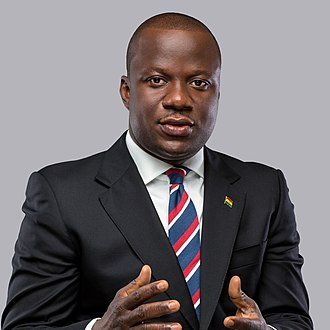A ranking Member of the Foreign Affairs of Committee of Parliament, Samuel A.
Jinapor, has stated that the recently launched chip-embedded passport is not the creation of the current government.According to him, the previous government started the project and the current government could not take credit for it."The project is the result of a multi-year process that started long before the current administration took office," Mr Jinapor said in a public commentary to clarify the issue following the nationwide rollout of Ghana's new chip-embedded passport.The chip-embedded passport was launched on Monday, April 28, 2025.He said the launch was a major milestone, the narrative that credited only the current government did not reflect the full story and undermined the institutional work that made it possible."The origins of the chip-embedded passport can be traced back to 2013 when the International Civil Aviation Organisation (ICAO), at its 38th Session, adopted the Traveller Identification Programme Strategy.
This global policy encouraged countries to introduce secure, machine-readable and electronic travel documents," Mr Jinapor, stated."Ghana began discussions shortly thereafter, but the process remained slow due to various challenges.
When the Akufo-Addo Government assumed office in 2017, it made digital transformation a core part of its agenda," he explained.According to Mr Jinapor, the then Government decided to upgrade the country's biometric passports to electronic chip-embedded passports.He said the plan also included establishing an online passport application and delivery system to improve public access."To implement this, the Central Tender Committee, through a letter dated February 21, 2018, approved a proposal for the Government to engage 25th Century Technology Limited," he said.The former Minister said the contract was structured as a Design, Build, Finance, Manage, Maintain and Transfer (DBFMMT) Public-Private Partnership, with financing responsibility resting on the developer."The Ministry of Foreign Affairs and Regional Integration, under the leadership of Shirley Ayorkor Botchwey, led stakeholder engagements with institutions such as the Ghana Immigration Service, National Security, and international partners," he said.Mr Jinapor said following these consultations, a formal Public-Private Partnership Agreement was signed with Biometric Travel Solutions Limited to proceed with implementation."What Ghanaians are witnessing today is the result of deliberate planning and continuity in governance, crediting only the current administration with the chip-embedded passport programme is misleading and denies the public a clear understanding of how national projects evolve," he stated.According to him, transparency and historical accuracy must guide how such achievements are communicated.Mr Jinapor reaffirmed the Minority's commitment to supporting all national policies that benefitted the citizens, regardless of which government initiated them.He called on Ghanaians to embrace the new passports as a collective national achievement and to appreciate the institutional collaboration and foresight that made it possible BY TIMES REPORTER

